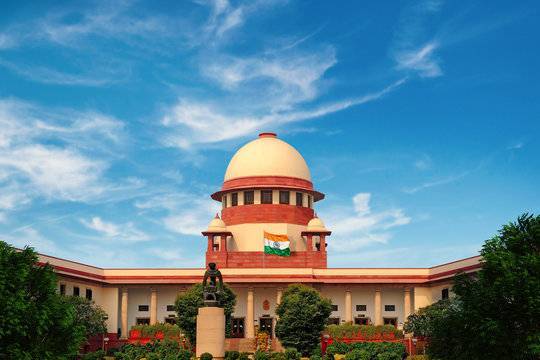
GAG LAWYERS -
GROVER & GROVER ADVOCATES

GAG LAWYERS -
GROVER & GROVER ADVOCATES

Landlord-Tenant Lawyer, Landlord-tenant law is a set of laws that govern the relationship between landlords and tenants. It covers topics such as how to properly draft a lease agreement, how to collect rent, and how to handle evictions. It also outlines the rights and responsibilities of both landlords and tenants. Landlord-tenant law is an important area of law that helps protect landlords from unfair tenant practices and tenants from unfair landlord practices.
A landlord is a person or entity that owns property used for leasing to tenants. In most jurisdictions, a tenant is either an individual owner of property (in which case they are called a “tenant-occupier”) or an entity that leases (owns) property from the landlord. Tenants commonly rent out residential and commercial spaces, but other types of landlords may exist as well, such as hotels, mining companies, and farms.
Landlord-tenant law usually covers the following topics: Often referred to by real estate lawyers as “landlord-tenant law,” this area of law regulates the rights and duties of a landlord and tenant. This includes the relationship between the parties, occupying obligations, rent, security deposit refunds, repairs, and day-to-day interaction with the landlord.
It is a term used to refer to the class of people who own property, which they rent out, or to other entities that have privileges of some sort over the property. In modern usage, this word has come to mean someone with a great deal of wealth. A landlord is an individual or entity that owns residential rental properties and leases them out on a long-term basis. Landlords typically provide these housing units in return for occupancy rents and security deposits from tenants (who may be called tenant-occupiers), but real estate sellers might also rent out their property if they are not using it as a house themselves.

In India, landlord-tenant law cases can be complicated and difficult to navigate. Landlords and tenants should be aware of the different types of charges, penalties, and punishments that may be imposed when a dispute arises. In this article, we will discuss the different types of charges, penalties, and punishments in landlord-tenant law cases in India. We will also look at the various laws governing this field in India and how they affect landlords and tenants alike.
A landlord can be charged with a variety of different things, depending on the specifics of the case. For example, if a tenant is not paying rent, the landlord could be charged for evicting the tenant and then charging them for damages.
If a dispute arises between two landlords over rental contracts, both parties could be charged. If a landlord or their agent makes unauthorised demands from a tenant to make repairs or carry out work, they may be fined for any expenses incurred by the tenant in response to those demands.
Penalties and Punishments in Landlord-Tenant Law Cases: The penalties and punishments in landlord-tenant law cases are extensive and vary depending on the specifics of each case. For example, if a tenant has a valid lease or rental agreement, the landlord may not be able to evict them without first getting permission from a court. If a landlord does evict someone without going through court proceedings first, they could face large fines for violating their own contract with the tenant.
The charges, penalties, and punishments for landlord-tenant law cases in India depend on the nature of the dispute and the applicable laws in the state or union territory. Generally, the landlord can take action against the tenant if they violate the terms of the rental agreement or fail to pay the rent.
This action can include the filing of a civil suit or criminal complaint. In cases of civil suits, the landlord can seek damages and/or rent arrears in addition to legal costs. In cases of criminal complaints, the landlord can file a complaint with the police. Depending on the laws in the state or union territory, the tenant may face criminal charges such as criminal trespass, criminal intimidation, and/or wrongful confinement.
The punishment for these offences can include imprisonment, fines, or both. In some cases, the tenant may also be liable for damages caused to the landlord’s property. The landlord may seek compensation from the tenant for the damage caused. In such cases, the tenant may be required to pay a lump sum or make monthly payments to the landlord.

In India, landlords and tenants have certain legal rights and remedies available to them in case of disputes. The primary purpose of these laws is to protect both parties from any exploitation or abuse by the other side. It is important for both landlords and tenants to be aware of the legal remedies available in case a dispute arises, which could potentially save them time, money, and energy. This paper will discuss the legal remedies that are available under Indian law in the event that landlord-tenant cases arise.
Under Indian law, there are a number of legal remedies available to landlords and tenants in cases of landlord-tenant disputes. These include the following:
1. Lease Agreement: A lease agreement in India is a legal document between two parties: the lessor (the owner of the property) and the lessee (the person who is renting the property). It sets out the terms and conditions of the lease, including the length of the lease, the amount of rent to be paid, and other details such as security deposits, restrictions on the use of the property, and the responsibilities of both parties. It is important to review and understand the terms of the agreement before signing it.
2. A written lease agreement is the best way to avoid any disputes between the landlord and tenant. The agreement should include clear clauses regarding the rent amount, duration of the lease, payment terms, security deposit, maintenance and repairs, use of the property, and other terms.
3. Rent Control Laws: Rent control laws in India are laws that regulate the rental and lease of residential and commercial properties. These laws are designed to protect tenants from unreasonable and excessive rent increases as well as ensure that landlords are able to receive a fair return on their investment. Rent control laws vary from state to state, with some states having more stringent regulations than others. Most states in India have rent control laws to protect the rights of tenants. These laws limit the amount of rent that a landlord can charge as well as other terms of the rental agreement.
4. Eviction: Eviction in India is largely unregulated, meaning that people can be forcibly removed from their homes without any legal protection. This can occur due to the expiration of a lease, a landlord wanting to reclaim a property, or for any other reason. In some cases, eviction is carried out without notice or payment of compensation, leading to human rights abuses and a lack of access to adequate housing.
5. A landlord may seek the eviction of a tenant who has violated the terms of the lease agreement or has failed to pay rent. The landlord must follow certain procedures and obtain a court order for eviction.
6. Deposit Refund: A tenant may seek the return of the security deposit from the landlord if the landlord has failed to return the deposit after the end of the lease period.
Landlord-tenant law in India provides for a refund of the deposit amount to the tenant on completion of the lease agreement. The amount of the refundable deposit may vary depending on the terms of the lease agreement. Generally, if the tenant has not caused any damage to the property and has paid all the rent due, the landlord is obligated to refund the deposit amount to the tenant.
7. Compensation: In landlord-tenant law in India, compensation refers to a sum of money that a tenant may be entitled to from a landlord if the landlord fails to uphold their end of the tenancy agreement. This may include a landlord failing to make necessary repairs to the property, failing to return any security deposits, or other matters related to the tenancy agreement. Tenants may be able to seek both legal and monetary compensation from the landlord for any losses caused by their breach of the tenancy agreement.
If the landlord has caused any damage to the property or has interfered in the tenant’s peaceful possession of the property, the tenant may seek compensation from the landlord.

In India, landlord-tenant lawyers play an important role in landlord-tenant law cases. They can provide legal advice to both the landlord and tenant, help them draft and review Documents, and represent them in court. Lawyers can help tenants understand their rights and protect them from unfair practices.
They can also help landlords understand their rights and obligations and protect them from legal disputes. Additionally, lawyers can negotiate rental agreements and help landlords and tenants come to an agreement that serves both parties. Landlord-tenant law is an evolving area of law that is quickly changing in India.
It is important for landlords and tenants to be aware of their rights and responsibilities, as well as the laws that govern their relationship. Lawyers play an important role in helping landlords and tenants understand these laws, advising them on how to best protect their interests, and representing them in court if necessary. With India’s growing population and its booming real estate market, landlord-tenant law lawyers are becoming increasingly sought-after.
The landlord-tenant relationship in India can be broadly divided into Tenancy agreements in India are governed by the “Rent Control Act, 1973”. The law specifies that tenants and landlords must negotiate a tenancy agreement that is no longer than one year. A landlord cannot demand an extension of the tenancy agreement unless he or she has given at least 30 days’ notice to the tenant.
The landlord must also give 30 days’ notice before withdrawing any benefits granted to tenants under this law. Owners of residential buildings cannot evict tenants without following these procedures, except for serious misconduct or illegal activities on the part of the tenant.

The Indian Rent Control Act, or RCA, lays down laws governing the relationship between landlords and tenants in India. In order to file a case related to landlord-tenant law, one must possess certain documents that will be required for the filing process. These documents include proof of ownership of the property, rent receipts, and contracts between the tenant and landlord. Additionally, any other relevant documents related to the dispute should also be produced for the court’s consideration.
The Indian Rent Control Act, or RCA, lays down laws governing the relationship between landlords and tenants in India. In order to file a case related to landlord-tenant law, one must possess certain documents that will be required for the filing process. These documents include proof of ownership of the property, rent receipts, and contracts between the tenant and landlord.
The following documents are required to file a case related to landlord-tenant law in India:
1. Lease Agreement: A valid lease agreement between the landlord and the tenant must be submitted to the court.
2. Notice of Termination: If the tenant is being evicted, the landlord must provide a valid notice of termination to the tenant stating the reasons for eviction.
3. Rent Receipts: Rent receipts or bank statements must be provided to prove that the tenant has been paying rent on time.
4. Proof of Ownership: The landlord must provide proof of ownership of the property that is being rented by the tenant.
5. Property Tax Returns: The landlord must provide copies of the property tax returns to prove that they are paying the property taxes on time.
6. Documents Related to the Property: Documents such as the title deed, building plan, and other documents related to the property must be submitted to the court.
7. Legal Documents: The landlord must provide legal documents, such as the rules and regulations of the state regarding landlord-tenant law.
8. Evidence of Breach of Contract: The landlord must provide evidence of the breach of contract that has been committed by the tenant.

Grover & Grover, Advocates and Solicitors, provides legal advice and representation to both landlords and tenants with regard to landlord-tenant law in India. They can assist with drafting rental agreements, negotiating rental terms, resolving disputes between landlords and tenants, filing eviction notices, and dealing with any other legal issues that may arise.
Additionally, they can provide legal advice on the rights and obligations of both parties and can provide guidance on the procedures necessary to go through if either party wishes to take legal action. Grover & Grover, Advocates and Solicitors, is a leading legal firm based in India that provides professional advice and representation for cases related to landlord-tenant law. They have extensive experience in this field and specialise in helping landlords, tenants, and other stakeholders make informed decisions about their legal rights.
They can assist with drafting rental agreements, negotiating rental terms, resolving disputes between landlords and tenants, filing eviction notices, and dealing with any other legal issues that may arise. Additionally, they can provide legal advice on the rights and obligations of both parties and can provide guidance on the procedures necessary to go through if either party wishes to take legal action.
Grover & Grover, Advocates and Solicitors is a leading legal firm based in India that provides professional advice and representation for cases related to landlord-tenant law. They have extensive experience in this field and specialize in helping landlords, tenants, and other stakeholders make informed decisions about their legal rights.
The firm provides detailed guidance on tenant rights, landlord obligations, rent agreements, lease contracts, eviction proceedings, and more. With their knowledge of India’s complex laws related to landlord-tenant cases, Grover & Grover Advocates and Solicitors can provide quality legal services to ensure the best outcomes for their clients.
Grover and Grover have successfully represented landlords and tenants in hundreds of cases. They provide individual legal advice as well as a full range of services for landlord-tenant disputes. The firm can also help advise clients on the best course of action for meeting their needs. For example, they can evaluate a client’s options when it comes to obtaining fair rent or eviction proceedings. Grover & Grover is also one of India’s leading real estate law firms. The lawyers have decades of experience handling commercial property and land disputes.

Landlord-tenant law in India is an important area of the legal system. The Supreme Court and High Courts of India have issued several judgements related to landlord-tenant laws that have become popular cases. These rulings are significant for landlords, tenants, and other stakeholders in the rental industry.
1. Phool Kumari v. Kalu Ram, AIR 1980 SC 1717 This case dealt with the issue of a tenant’s right to remain in a house even after the expiration of the lease period. The court held that the tenancy can be extended for a reasonable period as long as the tenant is not in arrears of rent.
2. Mallikarjun v. Bhimrao, AIR 1988 SC 1464 This case dealt with the issue of whether a tenant can be evicted from a house for non-payment of rent. The court held that a landlord cannot evict a tenant from a house for non-payment of rent unless the landlord is willing to accept the tenant’s reasonable offer to pay the arrears.
3. N.K. Sharma v. Rajesh Kumar, AIR 1991 SC 1468 This case dealt with the issue of whether a tenant can be evicted on the grounds of non-use of the premises. The court held that a landlord cannot evict a tenant on the grounds of non-use of the premises unless the landlord has reasonable grounds to believe that the tenant is misusing or not taking proper care of the premises.
4. K.C. Srinivasan v. M.V. Rajesh, AIR 1996 SC 2126 This case dealt with the issue of whether a tenant can be evicted for subletting the premises without the landlord’s consent. The court held that a landlord can evict a tenant for subletting the premises without the landlord’s consent, provided that the tenant has failed to comply with the terms of the agreement and has not taken reasonable steps to rectify the breach.
5. M/s. Mahavir Prasad v. M/s. Kishorelal, AIR 2003 SC 1031 This case dealt with the issue of whether a tenant can be evicted for carrying out illegal modifications to the premises without the landlord’s consent. The court held that a landlord can evict a tenant for carrying out illegal modifications to the premises without the landlord’s consent, provided that the tenant has failed to comply with the terms of the agreement and has not taken reasonable steps to rectify the breach.